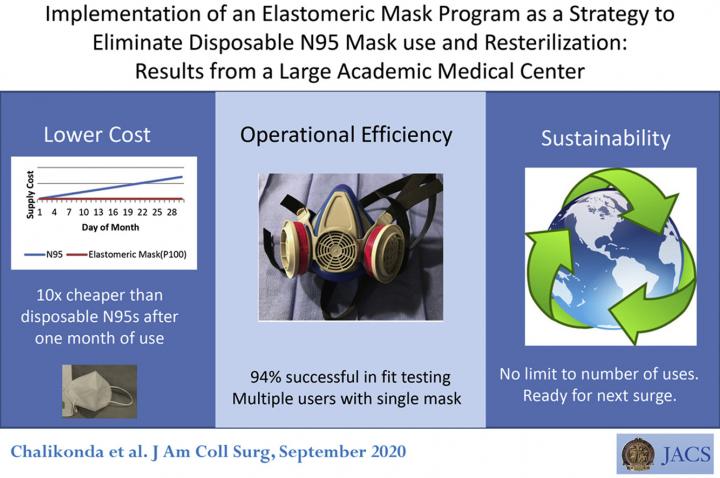
A real-world hospital study has shown that elastomeric respirators are cost-effective, reusable and could solve the problem of N95 respirator shortages if used during the COVID-19 pandemic, according to investigators.
Elastomeric respirators use a replaceable filter. They are constructed from a flexible, rubber-like material that is tight-fitting but adjustable to various face shapes and can withstand multiple cleanings.
They also provide equal or better protection from airborne infectious substances compared with N95 respirators, according to the Centers for Disease Control and Prevention.
In a month-long trial at Pittsburgh-based Allegheny Health Network, elastomeric respirators with P100 filters were found to be more durable and less costly than N95 masks. About 94% of 2,000 healthcare providers were able to wear the mask comfortably, and no one chose to return to using an N95 respirator at the end of the study period. Furthermore, patients were receptive to their care providers wearing this type of respirator, the authors claimed.
“Our clinicians were very comfortable with the fit, knowing it was an equivalent if not superior amount of protection, and that these masks were intended to be reused,” said Sricharan Chalikonda, M.D., chief medical operations officer.
An elastomeric respirator disinfection program does not pose greater operational challenges than an N95 reuse and resterilization program, the researchers reported. And the masks can be stored for future surges, they added.
A cost-benefit analysis showed that the masks also helped to save money. While an elastomeric respirator runs about $20 and a new filter costs $10 compared to about $3 for an N95 mask, the elastomeric masks were found to be 10 times less expensive.
The immediate stockpiling of elastomeric masks in healthcare systems could be a game changer, Chalikonda concluded.
“We don’t know if there will be a shortage of N95s again. We don’t know how long the pandemic will last and how often there will be virus surges,” Chalikonda said. “We believe now is the time to invest in an elastomeric mask program.”
The study currently appears as an article in press on the Journal of the American College of Surgeons website.





